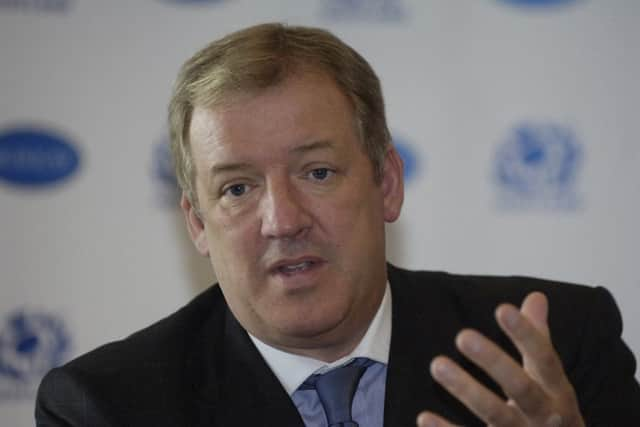HMRC win ‘big tax’ case against Rangers


Judges in the Inner House of the Court of Session allowed an appeal by the Advocate General for Scotland, acting on behalf of HMRC, over the use of the now-outlawed employee benefit trusts during the first decade of the century by companies run by Sir David Murray, including the now-liquidated football club Rangers.
The court ruling, summarised on the Judiciary of Scotland website, agreed with HMRC’s contention the scheme amounted to “a mere redirection of earnings which did not remove the liability of employees to income tax”.
Advertisement
Hide AdAdvertisement
Hide AdThe decision is in relation to Murray Group companies including the liquidated company now called RFC 2012 plc and does not affect the curent regime at Ibrox.


The Murray group contended that the payments - made through the now outlawed Employee Benefit Trusts from 2001 to 2010 - were loans and not taxable income but that was dismissed by the Lord Justice Clerk, Lord Carloway, sitting with Lord Menzies and Lord Drummond Young.
The judges decided that any income derived from employees’ services is classed as earnings and subject to income tax.
Advertisement
Hide AdAdvertisement
Hide AdLord Drummond Young said: “That accords with common sense. If the law were otherwise, an employee could readily avoid tax by redirecting income to members of his family to meet outgoings that he would normally pay: for example to a trust for his wife... or to trustees to pay for his children’s education or the outgoings on the family home.”
The judges ruled that the “true nature” of the payments to Rangers players were bonuses, which were typically negotiated by their agent and formalised in a “side-letter” separate to their official contract.
Lord Drummond Young added: “It seems to us to be self-evident that the obligations in the side-letter were part of the employee’s employment package, and provided him with additional remuneration. They were negotiated as part of the total employment package.
“Furthermore, so far as the footballers are concerned, at least, it seems to us that if bonuses had not been paid they might well have taken their services elsewhere.
Advertisement
Hide AdAdvertisement
Hide Ad“We realise that the fifth respondent (RFC 2012) was in, potentially, a difficult financial position, competing for good players in an international market where other countries may not have the same rigorous approach to taxation as the United Kingdom.
“Nevertheless, the law is clear: the payments made in respect of footballers were in our view derived from their employment and thus the payments were emoluments or earnings.”
The judges confirmed that the responsibility for the payment of tax fell on the employer in each case.
Sir David sold his majority stake in Rangers to Craig Whyte in May 2011 and the club was consigned to liquidation 13 months later over separate debts, before being relaunched as a new company.
Advertisement
Hide AdAdvertisement
Hide AdEarlier today Rangers revealed they made a loss of £7.5million last season.
The figures are a slight improvement on the previous campaign, when the club lost £8.1million.
Turnover fell by just over a million pounds to £16.5million despite the club moving up to the Championship.
The Rangers International Football Club plc figures showed operating expenses also fell slightly to £26.8million.
Advertisement
Hide AdAdvertisement
Hide AdRangers underwent regime change towards the end of the financial period, when Dave King and the so-called Three Bears consortium seized power from Mike Ashley and allies following a shareholder vote on March 6.
The club reported a number of “key advancements” since then, including “sound corporate governance”, a return to “operational and financial stability”, investment in stadium infrastructure and staffing levels, a significant rise in season ticket sales and re-engagement with supporters and football authorities.
Chairman King said: “It must be remembered these figures are for the financial year which ended in June this year leaving no time for the changes implemented by the new board, which took over in March, to impact on them.
Advertisement
Hide AdAdvertisement
Hide Ad“The year under review was a difficult one both on and off the field but Rangers supporters and investors can be assured that significant inroads have already been made on a number of fronts.
“A new football management team of Mark Warburton and David Weir is now in place and the team is performing extremely well on the pitch, staffing levels are improving at Ibrox and Auchenhowie, and there is once again a genuine belief that the club faces a much brighter future.
“The year under way is already much more promising on all fronts and I look forward to this time next year when I can comment on a financial year that is wholly under the influence and guidance of the new board.
“For the first time in many years we should now be able to move forward in a constructive manner.”
Rangers announced their annual general meeting would be held at Clyde Auditorium on November 27.